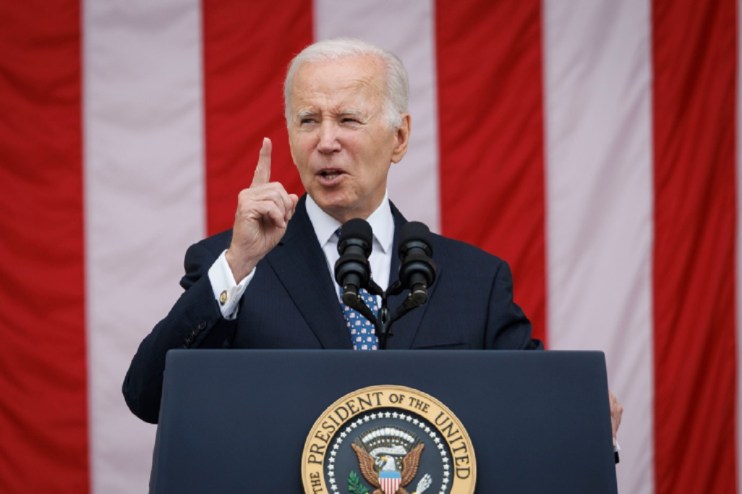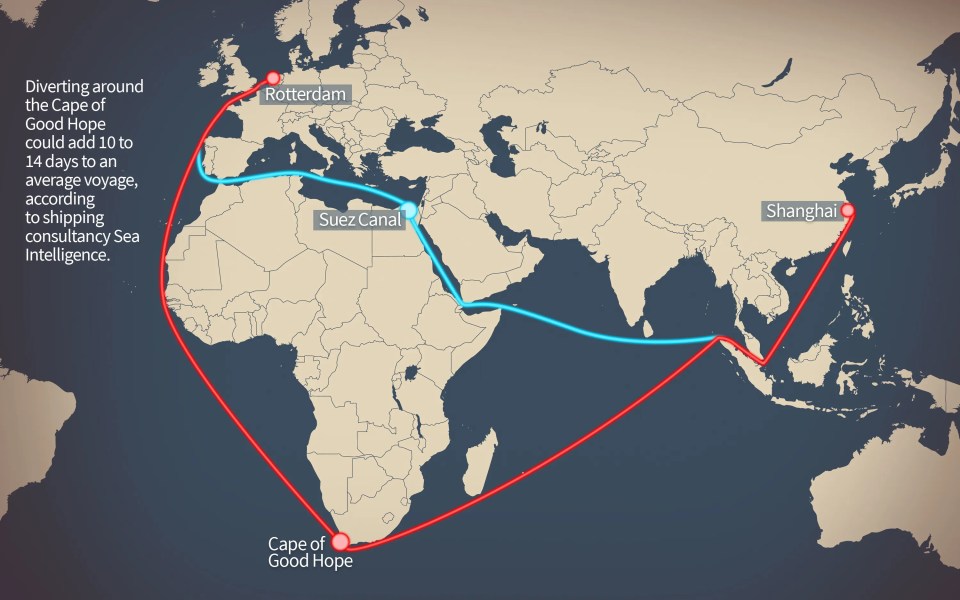Biden on Red Sea: Strikes haven’t stopped Houthi attacks – so we’ll carry on

US President Joe Biden pledged to continue attacks on Houthi sites in Yemen in an effort to restrict the militant group’s ability to disrupt shipping in the Red Sea.
The US and UK hit sites linked to Houthi attacks on shipping heading past the Yemeni coast, with the militants claiming all boats ‘linked to Israel’ are a target amid the country’s war with Hamas.
Attacks have continued despite the strikes, with another merchant ship hit overnight.
“Are they stopping the Houthis? No. Are they going to continue? Yes,” President Biden said yesterday.
Shipping costs have increased in response to the violence as major container lines, including Maersk and MSC, are forced to send traffic around South Africa’s Cape of Good Hope, a diversion which can add nearly two weeks to voyage times.
The Red Sea, where the Houthi attacks are occurring, is a vital passageway to the Suez Canal.
Suez Canal crossings represent 12 per cent of global trade flows, according to Lloyd’s List. More than a quarter of the vessels are container ships, which carry most of the world’s manufactured goods and products, while tankers and bulkers also make up a significant portion of traffic.

The Shanghai Containerised Freight Index (SCFI), the most widely used measure of freight cost, has risen 88 per cent from early December to the highest level outside of those seen during COVID-19 when rates went haywire in the post-pandemic shipping boom.
Maersk’s chief executive Vincent Clerc warned last week it could take months to reopen the Red Sea route if Houthi attacks are still seen as a threat.
High street retailers, major supermarkets and gloomy forecasts have dominated media headlines, warning the supply chain chaos will bump up prices for consumers at checkout and could leave shop shelves empty. There are also fears of a spike in global oil and energy prices in response.
But despite the long-term increase in shipping costs, shipping analysts and economists are sceptical they will feed through into a dramatic resurgence in inflation.
Simon Heaney, senior manager at Drewry, told City A.M. that in a worst-case scenario, where Suez has to be avoided for the entirety of 2024, global container ship capacity would reduce by some nine per cent.
Given the huge crop of ship orders placed during the post-2020 pandemic-era boom, many of which are just entering the fleet, Heaney argued the market would still be “heavily oversupplied”.